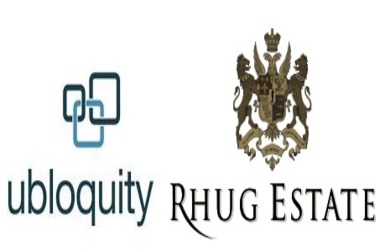
An alliance led by ubloquity, known as TETA, has entered into a collaboration with Rhug Estate, a Welsh premium organic lamb producer. Together, they have initiated a supply chain project that seeks to streamline the movement of top-notch lamb products to export markets, effectively eliminating bottlenecks introduced by Brexit.
Blockchain Technology Reshapes Supply Chains and Eases Export Hurdles
Rhug Estate, encompassing a sprawling 12,500 acres and renowned for its 100% organic and sustainable farming practices, has traditionally exported premium lamb from Wales to various hospitality markets throughout Europe. However, the aftermath of Brexit has been characterized by a 50% reduction in organic lamb exports. This decline can be attributed to an upsurge in administrative burdens, the intricate web of custom regulations, exhaustive veterinary checks, and the accompanying certifications.
The blockchain-based solution championed by ubloquity serves as a notable departure from the conventional ‘in check’ veterinary process required for exportation. Instead, it substitutes this manual process with digital checks that can be executed remotely, ensuring authentication and remarkable efficiency. By migrating these processes to the blockchain, the solution delivers substantial cost reductions to the business while simultaneously upholding transparency and accountability across the entire workflow.
The data collected from these remote checks, in addition to the wealth of regulatory information and protocols, is securely stored on the blockchain. This innovation establishes a ‘green export lane’ for Rhug Estate. By attaining ‘trusted trader’ status, Rhug can now transport its lamb products to European markets without the need for arduous checks and the subsequent time delays.
Ellen Moorehead, the Agri Tech Manager at ubloquity, was a prominent speaker at the ‘Demystifying the Applications of Blockchain: Is it worth the hype?’ panel during Wales Tech Week. Reflecting on the event, Moorehead expressed her enthusiasm, saying, “It was very exciting to be a part of the panel at Wales Tech Week and share a real-life example of how blockchain is transforming supply chains.”
In the wake of Brexit, meat exporters have encountered an added layer of paperwork and regulatory checks concerning goods destined for the EU market. This has led to increased expenses and time consumption for European customers seeking Welsh lamb and other premium meat products. Ellen Moorehead emphasized the importance of their partnership with Rhug Estate and industry experts, emphasizing the utilization of blockchain-enabled technology. This innovative approach digitizes processes, enabling checks to be executed remotely and ensuring that producers, such as Rhug Estate, can effortlessly deliver fresh, organic lamb to their European clientele.
The application of blockchain technology in this context has not only streamlined the export process but also signifies a broader shift in how industries perceive and utilize blockchain. As businesses increasingly grapple with the challenges posed by complex regulations and documentation, blockchain’s potential to offer secure and efficient solutions has come to the forefront.
The development also underscores the importance of partnerships between tech innovators and traditional industries. Collaboration between entities like ubloquity and Rhug Estate not only fosters innovation but also ensures that established sectors like agriculture can adapt to a rapidly changing global landscape.
In summary, the blockchain solution pioneered by ubloquity and Rhug Estate is poised to revolutionize Welsh lamb exports post-Brexit. This collaborative endeavor not only alleviates the bureaucratic hurdles but also sets a precedent for the integration of blockchain technology in supply chain processes, promising a more efficient and transparent future for various industries.